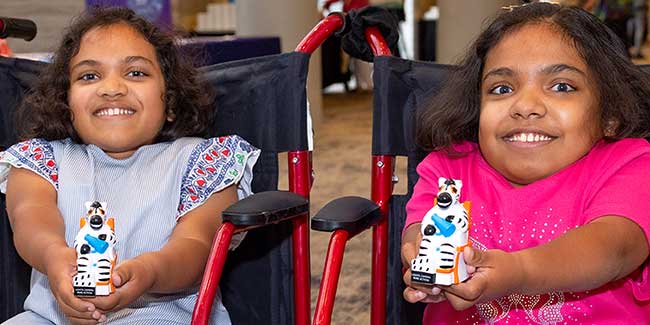Post-transplant lymphoproliferative disease (PTLD) is a rare, but well-known complication of solid organ transplants and hematopoietic stem cell transplantation. PTLD is related to the Epstein-Barr virus and immunosuppression therapy. People who receive these transplants are treated with drugs that suppress the activity of the immune system. Doctors must suppress the immune system to help the body accept the transplant and avoid rejection. Individuals receive these drugs at the time of the transplant (induction therapy) and must remain on these drugs for the rest of their lives (maintenance therapy). Immunosuppressive therapy leaves patients at a greater risk of developing infections and, in some people, of developing post-transplant lymphoproliferative disease. Early diagnosis and prompt treatment of these disorders are extremely important.
PTLD is characterized by the overproduction and spread of too many white blood cells (lymphocytes). This can cause complications ranging from a benign (noncancerous) enlargement of an organ or tissue because of the overproduction of these cells (hyperplasia) to the development of a malignant (cancerous) form of lymphoma. In most instances, PTLD is associated with the Epstein-Barr virus, a common virus that does not usually cause problems in people with normal-functioning immune systems. The abnormal white blood cells that grow out of control, usually a type of lymphocyte called a B-cell, may be infected by the Epstein-Barr virus. After a transplant, the dormant Epstein-Barr virus is reactivated, or the transplant recipient becomes infected with the virus for the first time.
PTLD is classified as a lymphoma, a group of related cancers that affect the lymphatic system. The lymphatic system functions as part of the immune system and helps to protect the body against infection and disease. It consists of a network of tubular channels (lymph vessels) that drain a thin watery fluid known as lymph from different areas of the body into the bloodstream. Lymph accumulates in the tiny spaces between tissue cells and contains proteins, fats, and certain white blood cells known as lymphocytes. As lymph moves through the lymphatic system, it is filtered by a network of small structures known as lymph nodes that help to remove microorganisms (e.g., viruses, bacteria, etc.) and other foreign bodies. Groups of lymph nodes are located throughout the body, including, but not limited to, the neck, under the arms (axillae), at the elbows, and in the chest, abdomen, and groin. Lymphocytes are stored within lymph nodes and may also be found in other lymphatic tissues. In addition to the lymph nodes, the lymphatic system includes the spleen, which filters worn-out red blood cells and produces lymphocytes, and bone marrow, which is the spongy tissue inside the cavities of bones that manufactures blood cells. Lymphatic tissue or circulating lymphocytes may also be located in other regions of the body.
There are two main types of lymphocytes: B-lymphocytes (B-cells), which may produce specific antibodies to “neutralize” certain invading microorganisms, and T-lymphocytes (T-cells), which may directly destroy microorganisms or assist in the activities of other lymphocytes. Some T-cells are cytotoxic lymphocytes and they function by eliminating other cells that are damaged, stressed, or infected. In most people with PTLD, there are too many B-cells being produced, but T-cell PTLD is also possible.

Every day matters for patients, researchers, and families who rely on NORD's trusted information.
We can’t keep these resources free and growing without your help.
Please donate today — and power the future of rare disease progress.


Whether you’re a patient, researcher, student, or advocate — we’re here for you.
If you’ve found NORD’s resources helpful, please consider donating.
Your support keeps this information free, updated, and available for everyone who needs it.

